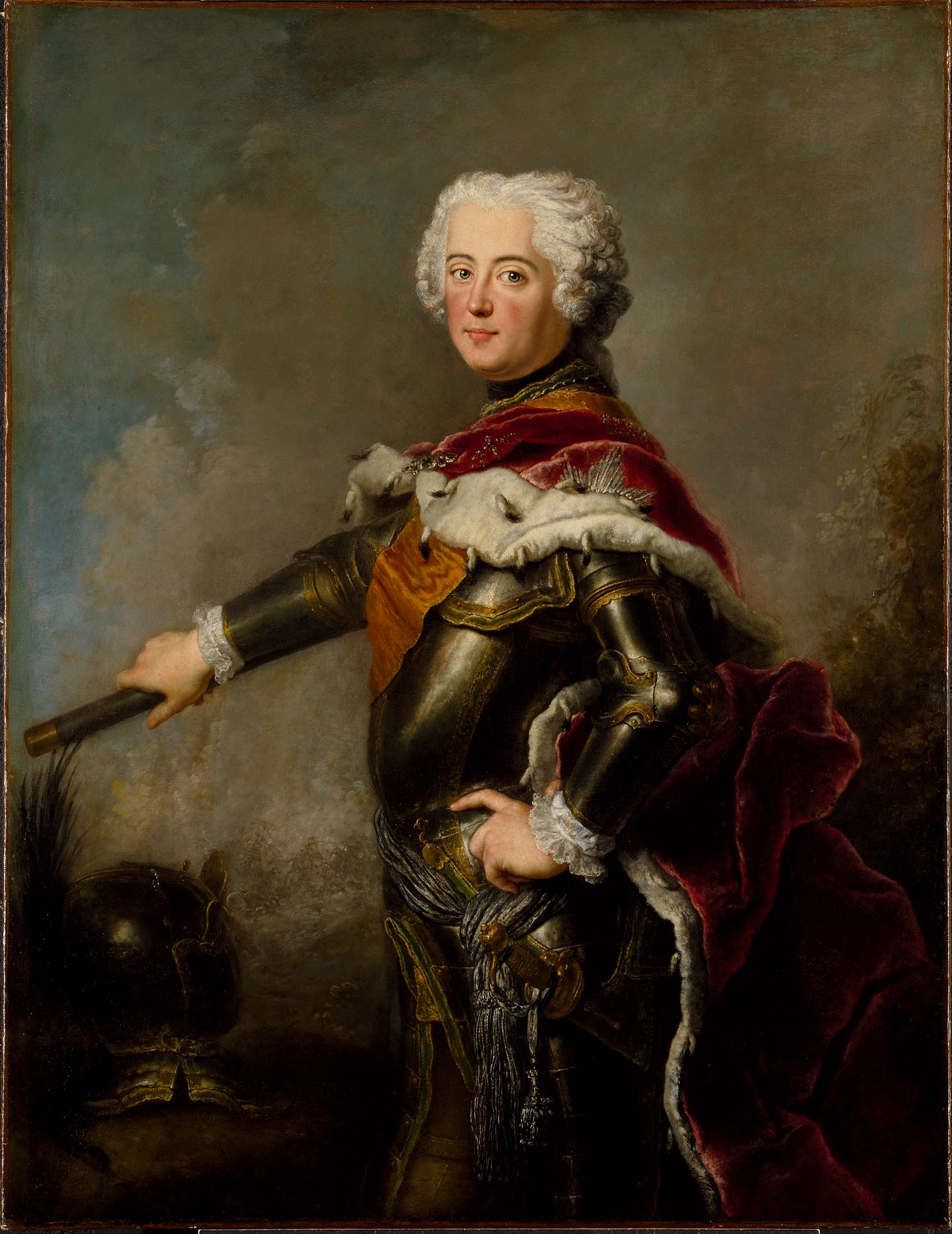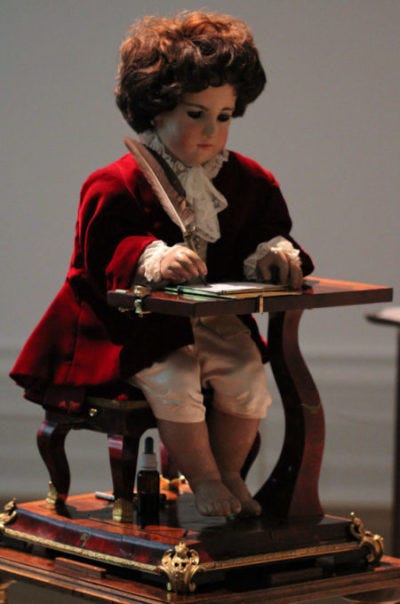Welcome back to our occasional series deep diving into some of the patron saints of organisational weirdness - people who have contributed to the weird working cultures we have today. Last time we looked Robert Owen and his ways of monitoring his mill workers without corporal punishment.
This time, we’re going even further back in history and briefly exploring the fascinating life and impact of Frederick the Great - or Friedrich II, King of Prussia from 1740 - 1786. He had a fairly turbulent youth - his father, Frederick William I, even threatening to execute him at one point - and was an avid fan and patron of music, poetry and literature. There is “abounding circumstantial evidence” that he was gay.

He was friends with Voltaire, who published his essay Anti-Machiavel just after he became king when he was 28. In it, he argued that Machiavelli was wrong and painted a vision of rational and benevolent statesmanship, painting a king as being responsible for maintaining the health and prosperity of his subjects, and the “first servant of the state”.
He (thanks wikipedia for this!): brought in various administrative reforms, increased freedom of speech, abolished “most” uses of torture, modernised the civil service, abolished separate courts for different social classes, and promoted religious tolerance as a way of attracting new skills and people into Prussia (although this was partly to make up for all the people who died in the MANY wars under his reign).
Rather fantastically he also made coffee a royal monopoly and employed teams of coffee sniffers to sniff out illegally roasting coffee. He also introduced new crops, including potatoes and was apparently sometimes called Der Kartoffelkönig “the Potato King”, and people still sometimes visit his grave to put potatoes on it
There are obviously many interesting things here! But the reason we are looking at him here is because of his influence on management and organisational theory. His moniker “the Great” is partly due to his military successes. Prussia was substantially bigger when he died than when he became king, and it became that way through a lot of war.

I’ve been reading a fascinating book from 1986, called Images of Organization, by Gareth Morgan, which explores the different metaphors we use to think about organisations. Morgan traces the beginnings of thinking about organisations as machines back to Frederick’s military reforms.
Frederick inherited poorly trained and skilled army, at a time when mechanical inventions were all the rage. As Morgan says:
“In particular Frederick was fascinated by the workings of automated toys such as mechanical men, and in his quest to shape the army into a reliable and efficient instrument he introduced many reforms that actually served to reduce his soldiers to automata”

He created ranks, uniforms, task specialisation and systematic training. He wanted to create a series of standardised parts that could work together efficiently - and crucially, be easily replaced (when they died. on a battlefield). He “fostered the principle that the men must be taught to fear their officers more than the enemy”. He invented the military drill as a training exercise. He developed the distinction between those advising (or managing!) and those commanding (or delivering!), and created clear standardised lines of command.
This was very successful from the point of view of Prussian military greatness. It has also echoed down the years as a way of thinking about organising, and the roles of people within organisations. As Morgan says (my emphasis!):
“Many of these ideas and practices had great relevance for solving the problems created by the development of factory systems of production … throughout the nineteenth century, as entrepreneurs struggled to find organizational forms suited to machine technology. The new technology was thus accompanied and reinforced by mechanization of human thought and action. Organizations that used machines became more and more like machines. Frederick the Great’s vision of a “mechanized” army gradually became a reality in factory and office settings as well”
There are so many remnants of this mechanical way of thinking about organisations that are embedded in our working culture still. And I wonder how much the fact that the majority of most people’s work is mediated in some way by a machine continues to imbue our way of thinking without us even being aware of it.
Next time you find yourself wanting someone to simply “slot in” to your team, or think about separating strategy from delivery, you are in some way channeling the ghost of Frederick the Great. What other types of machine metaphors do you find yourself using?
Remember you can drop us a voice note here, or leave us a comment below!






Well, coffee sniffer is definitely a job for me! However, I would also like the title of Die KartoffelKonegin. 🥔👸🏻Thanks for this!